Good nutrition is very important during the period of COVID-19 infection. The nutrient requirement increases during infection due to the following causes-
- To meet the body’s extra needs for energy and nutrients to fight with the disease, and it increases further when fever is present.
- To support immune system activity, intake of vitamins and minerals also increases.
- To cope up with the oxidative stress produced during COVID-19 infection, antioxidant needs also increase.
Why following a proper diet is essential for COVID-19 patients?
An appropriate diet help corona patients in the following ways-
- Help to manage symptoms of COVID-19 like fever, swallowing problem, dehydration etc.
- Improving their food tolerance
- Preventing severe complications like high fever, dehydration, etc.
- detoxifying the body.
- Ensuring early recovery of the patient.
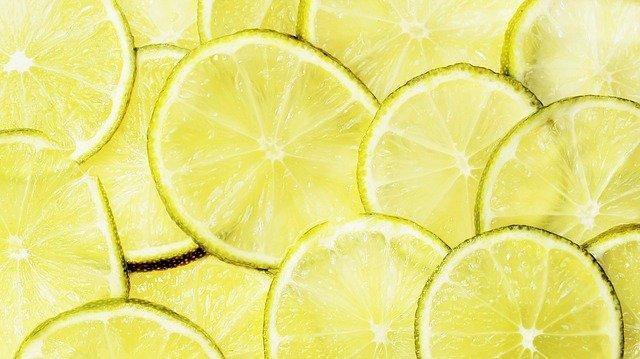
What to eat when you are corona positive?
If you test corona positive, you should give more attention to your diet. Intake of a proper diet ensures early recovery.
1. Increase food acceptability
- Since the intake of food at small and frequent intervals are better tolerated than the large meals, offer a small portion of foods at a time and increase the number of meals. You may offer 6 small to the patients instead of 3 to 4 major meals.
- and easy to swallow because many patients have throat pain and have difficulty in swelling.
- If there is severe throat pain, a soft diet or semi-solid diet should be given.
- It should be non-spicy and non-irritating to create minimum irritation in the body during food intake.
- The diet should be bland but colorful to increase food acceptance. The patient usually has a loss of smell and taste, so colorful foods are better accepted.
2. Ensure good digestion of the patient
- The diet should be easily digestible because such a diet is easy to assimilate
- Fruits and vegetables containing soft fiber can be given. Fruits like a ripe banana, ripe papaya, watermelon, pomegranate, orange, etc., and vegetables like potato, sweet potato, pumpkin, raw papaya are a good choice for corona patients.
- Limit the intake of pulses because excess intake may cause flatulence.
- All fried foods should be avoided as they may cause difficulty for digestion.
- If the patient has any food allergy, it must be omitted.
- Curds and paneer are better options for dairy products than milk because milk causes hyperacidity in susceptible individuals.

3. Ensure adequate nutrient intake
i) Energy / Calorie
The calorie requirement increases during corona diseases to cope with the high fever and overwork of the immune system of the patients.
To increase the calorie intake, 1 teaspoon of butter and 1 teaspoon of ghee can be incorporated into the daily diet of the patient. Homemade fruit juices are a good option. Cereal porridge, cereal pulse recipes like khichdi may also be given.
ii) Protein
The dietary protein should come from both animal protein (meat, fish, egg, poultry, and dairy products) and plant protein (pulses, nuts, etc.)
Table-1: Best choice of protein-rich foods
| Liberal intake | Limited intake | Exclude | Preferable method of cooking |
| Fish Egg Paneer Chicken | Pulses Beans Nuts | Red meat Spicy protein recipes | Boiling Steaming Soup Sauteing |
iii) Fat
A moderate intake of fat is good for corona patients. The dietary fat should be well-balanced and should be rich in omega-3 fatty acids (α-linolenic acid). (1)
Table-2: Best choice of fat-rich foods
| Limited intake | Exclude | Comment |
| Vegetable oils Butter Ghee | Fried foods High fat foods Outside foods Chips Spicy, fatty foods | Fat is difficult to digest. Use only a moderate amount of vegetable oils in cooking. |
iv) Carbohydrate
Since carbohydrates are a good source of energy, they should be an integral part of the diet. Cereal grains, like rice, wheat, oats, corns, etc., are the best sources of carbohydrate rich foods. Intake of refined sugars should be reduced. Excess intake of sugar is bad for your health. Intake of high fiber foods should also be reduced because they are difficult to digest.
Table-3: Best choice of carbohydrate-rich foods
| Liberal intake | Limited intake | Exclude | Preferable method of cooking |
| Rice Wheat Oats | Millet Pulse | Sugar Sweet beverages Soft drinks | Boiling Steaming Roasting Baking |
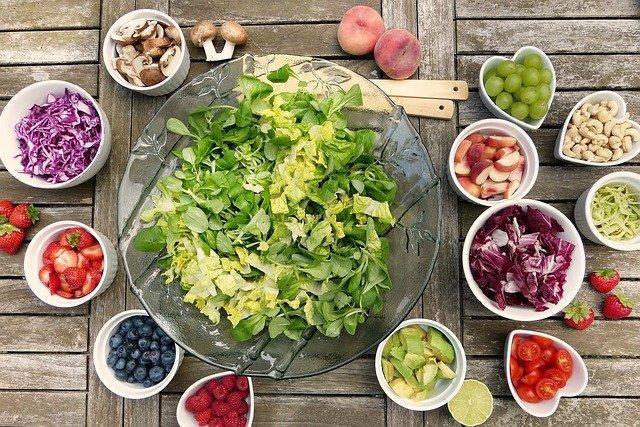
v) Vitamins and minerals
Vitamins and minerals play an essential role to maintain the optimum performance of our immune system. Adequate intake of vitamin-A, vitamin-B6, vitamin-B12, folic acid, vitamin-C, vitamin-D, and vitamin-E, are important. Trace elements, like zinc, iron, selenium, magnesium, and copper are also essential for rapid recovery.Omega-3 fatty acids, eicosapentaenoic acid, and docosahexaenoic acid play important roles in supporting the immune system. Inadequate intake of these nutrients and their deficient status are widespread, leading to poor resistance to infections. Dietary inclusion of foods rich in these nutrients is a safe, effective measure to support optimal immune function. (2)
Table-4: Important sources of vitamins and mineral in the Indian diet (3)
| Nutrient | Plant sources | Animal sources |
| Vitamin A | Carrots, Pumpkin, Spinach, Broccoli, Orange, Papaya, Mango, Tomato | Eggs, Liver, Oily fish |
| Vitamin B6 | Whole grain cereals, green leafy vegetables, Fruits, Soya products like tofu, Yeast extract | Fish Poultry Meat Eggs |
| Vitamin B12 | Fortified breakfast cereals, Yeast extract | Fish Meat Certain shellfish Milk Cheese Eggs |
| Folate | Broccoli, Brussels sprouts, green leafy vegetables, Spinach, Cabbage, Peas, Chickpeas, Fortified cereals | — |
| Vitamin C | Oranges, Red pepper, Green pepper, Strawberries, Black currants, Kiwi, Broccoli, Brussels sprouts, Potatoes | — |
| Vitamin D | Fortified foods like spreads, breakfast cereals etc. | Oily fish Liver Eggs |
| Vitamin E | Vegetable oils, Nuts Seeds, Wheat germ | |
| Zinc | Cereals and grains | Shellfish Meat Cheese |
| Selenium | Certain nuts especially brazil nuts | Fish Shell fish Meat eggs |
| Iron | Beans, Nuts, Dried fruit, Wholegrains, Fortified cereals, dark green leafy vegetables | Meat Liver |
| Copper | Nuts, Some vegetables | Shell fish Liver |
| Essential fatty acids | Pulses, Soyabean, Seeds, Nuts | Meat Poultry Fish Eggs Milk Cheese, |
| Long chain omega-3 fatty acids (EPA and DHA) | — | Oily fish |
- Hydrate your body and avoid dehydration.
Hydration of the body is very important for all ages of people but it is more important for the corona positive patients because of the following reasons.
- Water helps to regulate our normal body temperature. When body temperature rises above normal, water losses via the skin (both insensible perspiration and sweating), results in cooling of the skin. if sweat loss is not compensated for with fluid intake, it may cause dehydration. Moderate to high fever is a common symptom of COVID-19, adequate water intake is essential to cope up with the fever.
- Adequate water intake is needed for proper digestion of the patient and prevention of constipation.
- Inadequate water intake during diarrhoeal episodes invites dehydration and increases complications. Since diarrhea is also a symptom of COVID-19 infection, adequate hydration should be ensured for these patients.
- For proper renal function and efficient elimination of waste material from the body, water intake should be adequate.
- Staying well-hydrated, mainly through drinking ample amounts of plain water (6-8 glasses a day for most adults) also helps our immune system. (4)
- During illness, increased amounts of toxins are generated. Adequate hydration ensures the flushing of toxins.
What to drink during COVID-19 illness?
To ensure adequate water and proper hydration of the body you should take various types of liquid or semi-liquid foods like chaas, buttermilk, home-made fruit juices, coconut water, etc in liberal amounts.
Soups and juices are recommended due to the following reasons-(5)
- They prevent dehydration.
- The fluid is better tolerated than solid foods.
- The juice is rich in vitamins, minerals, etc. which help in the rapid recovery of the patients.
- They are useful to reduce the severity of the symptoms like nausea, vomiting, and fever.
- They are very helpful in maintaining the water and electrolyte balance,
- They detoxify the body.
Limit the consumption of alcohol. Alcoholic drinks have little nutritional value, are mostly high in calories, and excess consumption is linked to numerous health problems. If you drink alcohol, do so only in moderation.
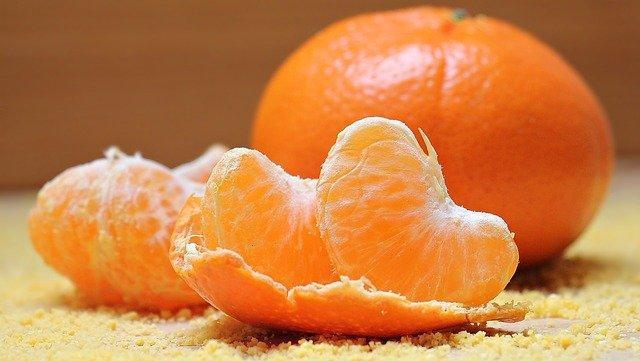
Table-5: List of Healthy and Tasty Drinks
| Type of Healthy Drink | Reason for drinking | How much can be taken |
| Coconut water | It is rich in potassium, vitamins and many other nutrients. | Drinking of one or two green coconut water is beneficial for the patients. |
| Lemon water | It is a very good source of vitamin C. Lemon water is helpful to detoxify the body. | One lemon juice in a day is adequate. |
| Oral rehydration solution (ORS) | ORS hydrate the body and prevent dehydration. It supplies potassium to the body. | Dissolve one 20g sachet in 1 liter of water and keep sipping throughout the day. Finish it within 24 hrs or discard the liquid. Remember the concentration of the liquid is important. |
| Orange juice | It provides vitamin-C and is beneficial for those suffering from COVID-19 illness. | Drink home-made orange juice if it’s in the season. |
| Black grape juice | It is helpful for blood formation. It is also rich in antioxidants. | Consumption of half cup of juice, twice a day is good for the patient. |
| Guava juice | Viral fever reduces the blood platelet count in most cases. Guava juice is effective to increase the platelet count. | Guava juice can be given once in a day. |
| Pomegranate juice | It helps in blood formation. | Once in a day is adequate. |
| Spinach soup | Spinach is rich in vitamin K, potassium, iron, and phytonutrients like carotene, B and Lutein, zeaxanthin, etc. | This vegetable soup is good for health. |
| Beetroot soup | Beetroot contains a very high amount of water, vitamin (B9, Vitamin C), minerals (manganese, potassium, iron) and antioxidants.Beet root juice is very effective in increasing the RBC count. | A glass of beetroot juice is a healthy refreshing drink. |
| Tomato soup | Tomato is also rich in vitamin C and potassium.It is full of antioxidants. | A good option for increasing the intake of water and antioxidants. |
| Amla water | Amla is the richest source of vitamin-C, providing 600mg per 100g of fruit. | Cut an amla fruit into pieces, boil them with a glass of water. Cool it. Add a teaspoon of honey and serve the drink to the patient. |
| Mousambi or sweet lime juice | It is a rich source of potassium, copper and a fair source of vitamin C. | You can give a cup of juice to the patient. |
- Increase the intake of antioxidant rich foods
The vegetarian diet is a rich source of antioxidants that protects us against chronic oxidative stress-related diseases. Plant foods contain various types of antioxidants. Antioxidants can eliminate free radicals and other reactive oxygen and nitrogen species, and these reactive species contribute to most chronic diseases. (6)
Table-6: Sources of Antioxidants in Indian Diet (7)
| Plant sources | Selected sources | Antioxidant content mmol/100 g |
| Cereals | Buckwheat (Bajra), whole meal flour | 2.0 |
| Nuts | Peanuts, roasted, with pellicle (China badam) | 2.0 |
| Pistachios | 1.7 | |
| Walnuts, with pellicle | 21.9 | |
| Sedds | Sunflower seeds | 6.4 |
| Amla (Indian gooseberry), dried | 261.5 | |
| Dates, dried | 1.7 | |
| Ladies finger (okra) | 4.2 | |
| Plums, dried (ber fruit) | 3.2 | |
| Pomegranate | 1.8 | |
| Prunes (alubokhra) | 2.4 | |
| Strawberries | 2.1 | |
| Basil, dried | 19.9 | |
| Bay leaves, dried | 27.8 | |
| Cinnamon sticks and whole bark | 26.5 | |
| Cinnamon, dried ground | 77.0 | |
| Clove, dried, whole and ground | 277.3 | |
| Dill, dried ground | 20.2 | |
| Ginger, dried | 20.3 | |
| Mint leaves, dried | 116.4 | |
| Nutmeg, dried ground | 26.4 | |
| Oregano, dried ground | 63.2 | |
| Rosemary, dried ground | 44.8 | |
| Saffron, dried ground | 44.5 | |
| Saffron, dried whole stigma | 17.5 | |
| Sage, dried ground | 44.3 | |
| Thyme, dried ground 56.3 | 56.3 |
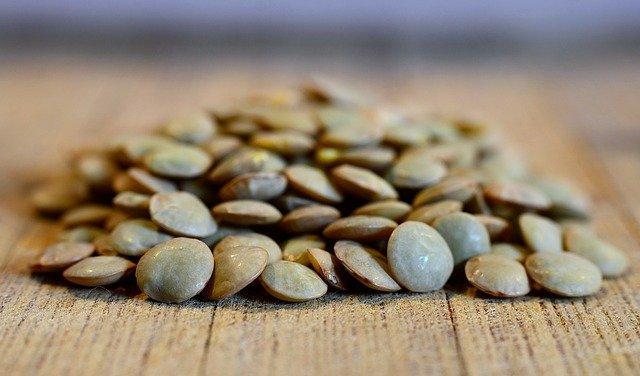
- Include at least 2 servings of curds
Probiotics are helpful to increase our immunity. (8)
Fermented milk products like curds, buttermilk, etc are a very good source of probiotics. So, these foods should be included in the diet. Other fermented foods are idli, dosa, etc. which should also be included in the diet of COVID patients.
If patient unable to tolerate milk during fever, or if he has any gastrointestinal symptoms like diarrhoea, then buttermilk or chaas may be a good option. Make basic simple buttermilk with or without sugar as per the patient’s preference. Try giving a glass of buttermilk for better digestion, gut health, and immunity.
Table-7: List of best vegetarian foods for corona patients
| Food groups | Best choices | Reason for selection |
| Cereals and cereal products | Rice flakes, Puffed rice, Whole wheat flour, Oats | Rice flakes is a rich source of iron. Puffed rice and boiled rice are easy to digest. |
| Pulses | Lentil, Moong dal | Compared to other pulses they are comparatively easy to digest |
| Nuts | Any type of nuts. | They are rich in protein and other nutrients. If the patient can digest nuts, they can eat but in limited amounts. Peanut butter can also be given. |
| Fruits | Watermelon, Pomgranate, Papaya, Green coconut, Orange, Sweet lime, Lime, Guava (ripe) | These fruits are rich in soft fibre, minerals, vitamins and antioxidants. They are easy to digest. They are rich sources of vitamin-C which play an important role to cure respiratory infections. |
| Vegetables | Potato, Sweet potato, Pumpkin, Raw papaya, Beet root, Carrot, Beans, Spinach, Coriander leaves | These vegetables are easy to digest. They contain soft fibre. Rich in vitamins and antioxidants. |
| Spices and herbs | Bay leaves, Coriander leaves, Turmeric powder, Cumin powder, Coriander powder | These spices are non-irritating, rich in antioxidants and minerals. |
Table-8: List of best non-vegetarian foods for corona patients
| Food groups | Best choices | Reason for selection |
| Fish | Any fish except prawns | Fish are not only rich in protein, but they also good sources of omega-3 fatty acids. |
| Eggs | Well-cooked eggs | Eggs are very good sources of protein, fat, and several vitamins and minerals. They are very easy to digest. |
| Poultry | Non-spicy chicken recipes like soups | Good sources of protein and other nutrients. |
| Dairy products | Milk (if tolerated) Butter milk, Curd, Whey protein | Both milk and whey protein has antiviral properties against SARS-CoV-2. (9) Fermented milk products are good sources of probiotics. |

What food to avoid during covid?
If you are a COVID-19 positive patient, it is better for you to avoid certain foods and to restrict the use of selected foods.
- Avoid all types of restaurant foods because they are high fat, highly spiced recipes that can create irritation to your G.I tract.
- Limit the intake of highly processed foods. It is better to avoid ready-to-eat meals, packaged snacks, and desserts since they contain a high amount of saturated fat, sugars, and salt.
- Restrict the intake of commercially available fruit juices, and beverages as they are loaded with sugar. Rather drink tasty and healthy home-made fruit juices as much as possible.
- If any food creates any digestion problem during illness, just avoid it.
- Restrict the intake of certain vegetables like cauliflower, cabbage, radish, etc as they are difficult to digest and may cause flatulence.
- Restrict certain fruits that are difficult to digest. Such fruits are palm, wood apple, etc.
- It is better to avoid red meat recipes as they are difficult to digest.
- Avoid all types of spicy foods. Restrict the use of spices in-home cooking because they may cause irritation to your G.I. tract. Do not take irritating spices like chilies.
- Restrict the intake of tea and coffee.
- Do not drink alcoholic beverages.
- Stop drinking cold drinks because they are loaded with sugar. Furthermore, cold foods are not good for your throat during illness. (10) (11) (12)
Diet plan for covid patients in India
The diet of the COVID patients should be planned according to the symptoms of the patient, severity of the disease, presence or absence of any complications, type of co-morbidity of the patients, and their food availability.
A sample menu for an adult covid patient is mentioned below-
| Meal Time | Vegetarian Diet Chart | Non-vegetarian Diet Chart |
| Tea time (7.00 a.m.) | A cup of green tea | A cup of green tea |
| Breakfast options (8.00 a.m.) | Anyone healthy breakfast option can be chosen DosaIdliRoti sabjiPoha with vegetablesBoiled sweet cornCurd rice | Any one healthy breakfast option can be chosen Bread-butter, boiled egg and bananaChapati with chicken soupRoti with raita and boiled egg |
| Mid-morning snack (10.00 a.m.) | A handful of nuts | A handful of nuts |
| Mid-morning drink (11.00 a.m.) | A glass of home-made fruit juice | A glass of home-made fruit juice |
| Lunch (1.00 p.m.) | Rice (1 cup) Dal with vegetables Boiled vegetables Raita | Rice (1 cup) Fish curry with vegetables Boiled vegetables Raita |
| Evening drink (3.00 p.m.) | A glass of butter milk or chass | A glass of butter milk or chass |
| Evening snack (4.00 p.m.) | Any one healthy breakfast option can be chosen Oat upmaSuji halwaSuji upmaPuffed rice with boiled green peasMilk and rice flakes | Any one healthy breakfast option can be chosen Oat upmaSuji halwaSuji upmaPuffed rice with boiled green peas |
| Evening drink (6.00 p.m.) | Anyone healthy breakfast option can be chosen Beet tomato soupSpinach soupOrange juiceLemon waterSweet lime juicePomgranate juice | Any one healthy breakfast option can be chosen Beet tomato soupSpinach soupOrange juiceNimbupaniSweet lime juicePomgranate juice |
| Dinner (8.00 p.m.) | Roti (1 or 2) or rice (1 cup) Non-spicy mixed veg curry Paneer curry Dal (half cup) | Roti (1 or 2) or rice (1 cup) Non-spicy mixed veg curry Egg curry Dal (half cup) |
| Bed time (9.30 p.m.) | Milk (1cup) | Milk (1cup) |
Bottom Line
Proper diet, containing all the nutrients in easily digestible forms, is essential for the corona positive patients. All processed foods and sugar-rich foods and beverages should be avoided. Instead, home-cooked, easily digestible foods should be included. Adequate intake of vitamins, minerals, and antioxidants should be ensured because they play an important role in the recovery process. It is needed to take a lot of water to flush out the toxins and to prevent dehydration.


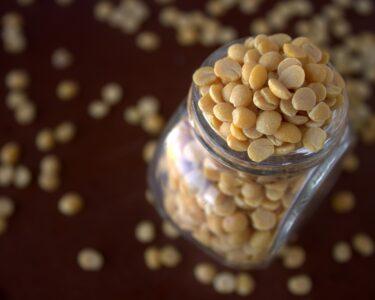

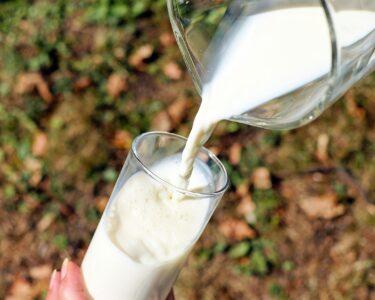
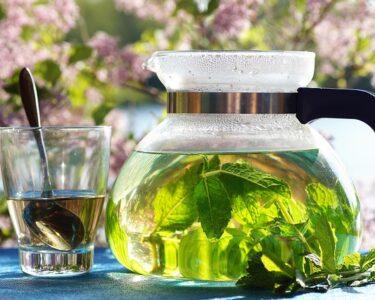
5 Comments